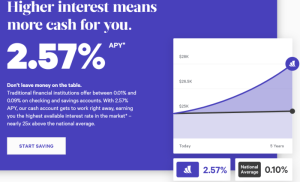
Debt Collection Laws 2025 sets the stage for this enthralling narrative, offering readers a glimpse into a story that is rich in detail with entertaining interactive style and brimming with originality from the outset.
Get ready to dive into the intricate world of debt collection laws, where recent changes, technological advancements, and international perspectives shape the landscape of debt recovery in 2025.
Debt Collection Laws 2025
In 2025, debt collection laws continue to play a crucial role in regulating how creditors and debtors interact in the collection process. These laws aim to protect the rights of both parties and ensure fair practices are followed.Debt collection laws encompass various regulations that govern how creditors can pursue unpaid debts from individuals or businesses. These laws Artikel the procedures that must be followed, the information that must be provided to debtors, and the limitations on what actions creditors can take to collect a debt.
Recent Changes and Updates
In recent years, there have been several changes and updates to debt collection laws to adapt to the evolving financial landscape. One significant update is the introduction of stricter guidelines on communication methods used by debt collectors. This includes restrictions on the frequency of calls, use of automated messages, and requirements for written confirmation of debt details.Another notable change is the emphasis on transparency in debt collection practices.
Debt collectors are now required to provide clear and accurate information to debtors about their rights, the debt amount, and options for repayment. Additionally, there have been updates to the statute of limitations for debt collection, providing a clearer timeline for when debts can be pursued.
Implications for Debtors and Creditors
These changes in debt collection laws have significant implications for both debtors and creditors. For debtors, the updated regulations offer more protection against harassment and unfair practices by debt collectors. Debtors now have more rights and avenues to dispute debts or seek assistance if they feel they are being treated unfairly.On the other hand, creditors must ensure they are compliant with the new regulations to avoid penalties or legal action.
The updated laws require creditors to be more transparent and ethical in their collection practices, which may require adjustments to their existing processes.Overall, the changes to debt collection laws in 2025 aim to create a more equitable and balanced system for debt collection, benefiting both debtors and creditors in the long run.
Compliance and Enforcement
Debt collection agencies play a crucial role in ensuring compliance with debt collection laws to protect consumers and maintain ethical practices in the industry. They are responsible for following strict guidelines and regulations to prevent abusive or harassing behavior towards debtors.
Role of Debt Collection Agencies in Ensuring Compliance
- Implementing training programs for employees to educate them on the laws and regulations governing debt collection.
- Maintaining detailed records of all communication and actions taken with debtors to ensure transparency and accountability.
- Regularly reviewing and updating policies and procedures to align with the latest legal requirements.
- Conducting internal audits and assessments to identify any areas of non-compliance and take corrective actions promptly.
Role of Regulatory Bodies in Enforcing Debt Collection Laws
- Monitoring and investigating complaints filed by consumers against debt collection agencies for violations of the law.
- Issuing fines or penalties to agencies found guilty of non-compliance to deter future misconduct.
- Providing guidance and interpretations of the laws to ensure clarity for both debt collectors and debtors.
- Collaborating with law enforcement agencies to take legal action against repeat offenders or severe violations.
Comparison with Previous Enforcement Mechanisms
- Increase in technological advancements allowing for better tracking and monitoring of debt collection practices.
- Stricter penalties and consequences for agencies found in violation of debt collection laws to discourage unethical behavior.
- Enhanced cooperation between regulatory bodies and industry stakeholders for effective enforcement and compliance.
- Greater emphasis on consumer protection and rights with improved transparency and accountability measures.
Technological Advancements

In 2025, technology plays a crucial role in revolutionizing debt collection processes, making them more efficient and effective. Innovative tools and software have been developed to aid in debt collection within the legal framework, streamlining the entire process.
Artificial Intelligence and Machine Learning
Artificial Intelligence (AI) and machine learning algorithms are being utilized in debt collection to analyze data, predict consumer behavior, and personalize communication with debtors. These technologies help in identifying the most effective strategies for debt recovery, increasing the chances of successful collections.
Automated Communication Systems
Automated communication systems, such as chatbots and interactive voice response (IVR) systems, have become prevalent in debt collection. These systems can engage with debtors, send reminders, and provide payment options, reducing the need for manual intervention and improving response rates.
Data Analytics Tools
Data analytics tools are being used to extract valuable insights from large volumes of data, enabling debt collection agencies to segment debtors based on their likelihood to repay, prioritize accounts, and customize collection strategies. This data-driven approach enhances the efficiency of debt collection practices.
Blockchain Technology
Blockchain technology is increasingly being explored in debt collection to enhance security, transparency, and trust in transactions. By leveraging blockchain, debt collection agencies can ensure the integrity of payment records, reduce disputes, and establish a more secure payment ecosystem.
Mobile Apps and Online Portals
Debt collection agencies are developing mobile apps and online portals to provide debtors with convenient access to their accounts, payment history, and settlement options. These digital platforms simplify the communication process, empower debtors to self-serve, and facilitate faster resolution of debts.
Consumer Protection Measures
In debt collection laws, there are key consumer protection measures in place to safeguard the rights of individuals during the debt collection process. These measures help ensure fair treatment and prevent abusive practices by debt collectors.
Fair Debt Collection Practices Act (FDCPA)
The Fair Debt Collection Practices Act (FDCPA) is a federal law that Artikels rules and regulations for debt collectors when collecting debts from consumers. It prohibits practices such as harassment, false statements, and unfair practices. For example, debt collectors are not allowed to contact consumers at unreasonable hours or use deceptive tactics to collect debts.
Validation of Debt
Consumers have the right to request validation of the debt from the debt collector. This means that the collector must provide proof that the debt is valid and that they have the right to collect it. This protects consumers from being pursued for debts they do not owe.
Debt Settlement and Payment Plans
Consumer protection measures also include provisions for debt settlement and payment plans. Debt collectors must work with consumers to come up with reasonable payment arrangements based on the individual’s financial situation. This helps prevent aggressive collection tactics and allows consumers to repay their debts in a manageable way.
Examples of Consumer Protection in Action
In a case where a debt collector was found to be using threatening language and false statements to pressure a consumer into paying a debt, the FDCPA was instrumental in holding the collector accountable. The consumer was able to seek legal action and protect their rights under the law.Overall, consumer protection measures embedded in debt collection laws serve as a crucial safeguard for individuals facing debt collection, ensuring fair treatment and upholding their rights throughout the process.
International Perspectives
In the realm of debt collection laws, it is crucial to consider the diverse approaches taken by different countries worldwide. These variations can shed light on best practices, global trends, and the impact of international collaboration on shaping regulations in 2025.
Comparative Analysis of Debt Collection Laws
When comparing debt collection laws across different countries, one can observe significant differences in regulations, enforcement mechanisms, and consumer protection measures. For instance, the United States has stringent laws like the Fair Debt Collection Practices Act (FDCPA) to protect consumers from abusive practices, while some European countries have more lenient regulations. In contrast, countries in Asia may have a different approach altogether, influenced by cultural norms and economic factors.
Global Trends and Best Practices
In 2025, there is a visible trend towards harmonizing debt collection laws globally to ensure consistency and facilitate cross-border debt recovery. Best practices such as ethical debt collection practices, transparency, and the use of technology to streamline processes are gaining traction worldwide. Countries are increasingly looking towards each other to adopt successful strategies and learn from one another’s experiences.
Impact of International Collaboration
International collaboration plays a crucial role in shaping the evolution of debt collection regulations. Organizations like the International Association of Credit Portfolio Managers (IACPM) and the International Association of Professional Debt Arbitrators (IAPDA) facilitate dialogue among countries to exchange knowledge, share best practices, and develop common standards. This collaboration not only fosters a better understanding of different legal frameworks but also helps in addressing global challenges in debt collection.
CREDIT AND COLLECTIONS BANKING SERVICES

In the realm of banking services, credit and collections play a crucial role in ensuring the financial health and stability of institutions. Efficient management of credit and collections is essential for maintaining a strong financial position and minimizing risks.
Role of Credit and Collections in Banking Services
Credit and collections services offered by banks are designed to facilitate the extension of credit to customers while ensuring timely repayment of debts. These services include assessing creditworthiness, setting credit limits, and managing collections processes in case of delinquencies.
- Banks provide credit analysis to evaluate the creditworthiness of individuals and businesses seeking loans or credit facilities.
- Collection services help banks recover outstanding debts through strategies such as negotiation, payment plans, or legal actions.
- Efficient credit and collections management allows banks to mitigate risks associated with non-performing loans and maintain liquidity.
Services Offered by Banks for Credit and Collections
Banks offer a range of services to support credit and collections processes, including credit monitoring, debt recovery, and credit counseling for customers facing financial difficulties.
- Credit monitoring services help banks track the creditworthiness of borrowers and identify potential risks of default.
- Debt recovery services assist banks in recovering overdue payments through personalized collection strategies.
- Credit counseling services provide guidance to customers on managing debts effectively and improving their financial situation.
Importance of Efficient Credit and Collections Management
Efficient credit and collections management is vital for financial institutions to safeguard their assets, maintain profitability, and uphold regulatory compliance.
- Effective credit management reduces the risk of defaults and enhances the profitability of lending operations.
- Timely collections improve cash flow and liquidity, ensuring the sustainability of banking operations.
- Compliance with regulations and industry standards in credit and collections practices is essential to protect customers and maintain trust in the banking sector.
End of Discussion
As we wrap up our exploration of Debt Collection Laws 2025, it’s clear that staying informed about these regulations is crucial for both debtors and creditors. The evolving nature of debt collection practices highlights the need for adaptability and compliance in this dynamic financial landscape.
FAQ Guide
What are the key changes in debt collection laws for 2025?
The updated laws focus on enhancing consumer protection measures and incorporating technological advancements for more efficient debt recovery processes.
How do regulatory bodies enforce debt collection laws?
Regulatory bodies monitor compliance, investigate complaints, and impose penalties on agencies violating the laws.
What role does technology play in debt collection in 2025?
Technology aids in streamlining collection processes, automating tasks, and improving the accuracy of debt-related data.
Why is understanding international perspectives on debt collection important?
Comparing global practices helps in identifying best approaches and adapting strategies to comply with international standards.




